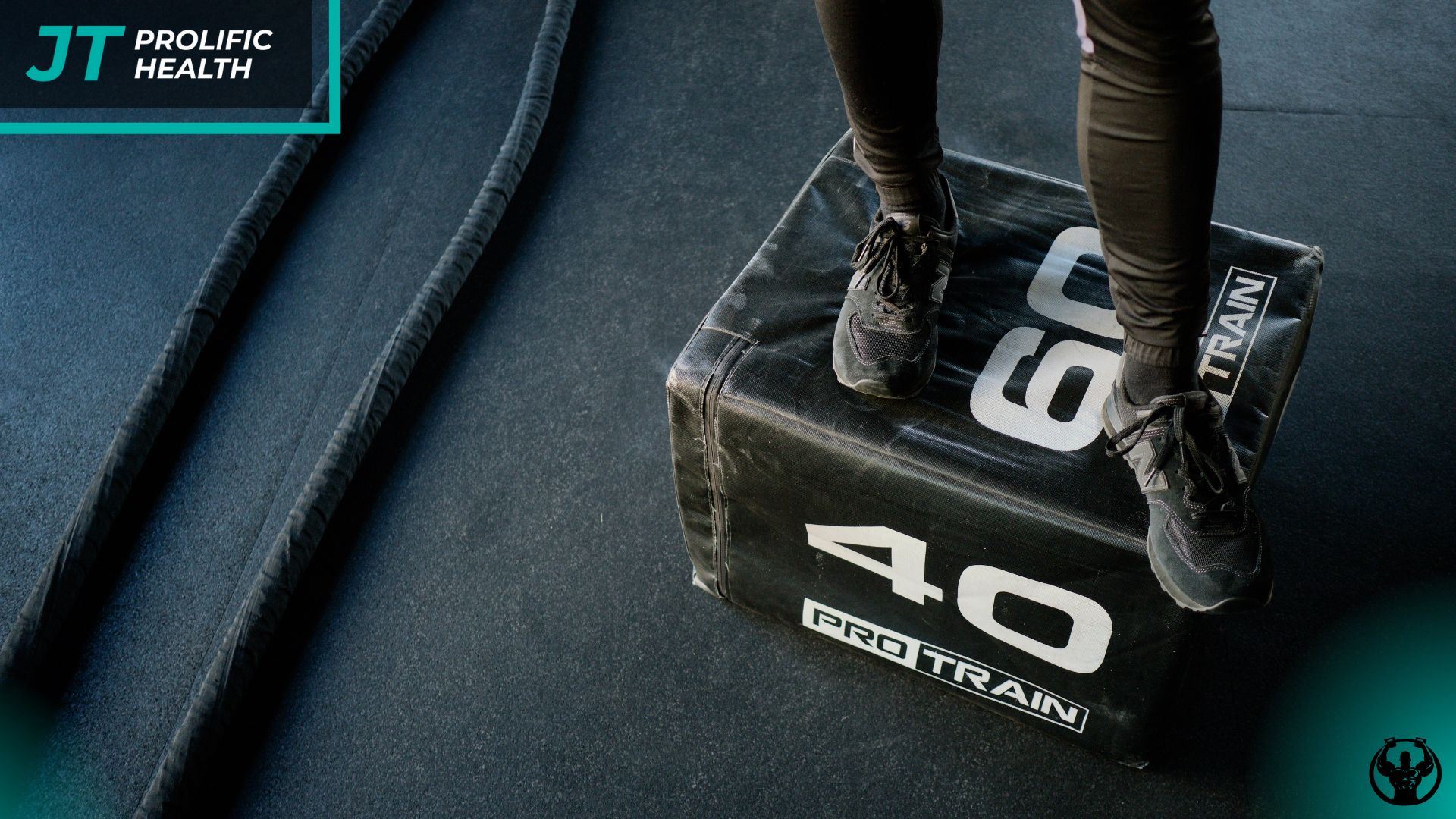Did you know 73% of gym-goers hit a progress wall within 6 months? Your body adapts faster than you think. When workouts stop delivering results, it’s not laziness – it’s biology.
Take James, a Vancouver accountant who lifted weights religiously for 8 months. Despite perfect form and nutrition, his gains vanished. Sound familiar? This adaptation phase signals it’s time to upgrade your strategy, not your effort.
At Prolific Health, we’ve helped hundreds in Richmond and Metro Vancouver reignite their momentum. Our methods analyze your unique adaptation patterns, turning stagnation into stepping stones. Plateaus aren’t dead ends – they’re proof you’ve mastered your current routine.
Key Takeaways
- Progress stalls affect 3 in 4 active people within half a year
- Plateaus signal successful adaptation, not failure
- Strategic changes beat brute-force effort every time
- Early detection prevents prolonged frustration
- Personalized adjustments deliver lasting results
Ready to transform plateaus into progress? Our team combines movement science with real-world experience. Let’s craft a plan that works with your biology, not against it.
Understanding Your Training Plateau And What It Means
Progress slowing down? It’s a sign of success, not failure. Your body thrives on efficiency, constantly adapting to repeated physical challenges. This natural process explains why those initial rapid improvements eventually level out.
The Evolution of Physical Adaptation
Early gains happen as your muscles and energy systems respond to new demands. Over 3-6 months, your cells optimize movement patterns and resource usage. What once left you breathless becomes manageable—proof of your body’s intelligent design.


When Growth Feels Frozen
Stagnation impacts more than physical metrics. Many athletes report fading enthusiasm and self-doubt creeping in. Your mind interprets the lack of visible results as personal failure, though it’s actually biological mastery.
Key markers of this phase include:
- Consistent effort yielding identical outcomes
- Workouts feeling less challenging
- Recovery times shortening noticeably
At Prolific Health, we help Vancouver clients reinterpret these signs. Plateaus become launchpads for smarter programming, not reasons to quit. Your next breakthrough awaits just beyond this equilibrium point.
Recognising The Signs Of A Plateau
How do you know when your routine stops working? The clues often appear in subtle shifts before measurable results stall. At Prolific Health, we track both physical markers and mental patterns to spot these transitions early.


Identifying Stalled Progress And Reduced Motivation
Your sessions start feeling like autopilot. That 5K time hasn’t budged in months. Weight plates gather dust as lifts stay unchanged. These aren’t failures – they’re signals your body needs new challenges.
Watch for these warning lights:
- Workouts that once left you breathless now feel routine
- Strength gains freeze despite consistent gym days
- Excitement about sessions fades into obligation
Noticing Changes In Energy And Recovery
Your post-workout buzz disappears. Some clients report dragging through afternoons, while others feel oddly restless. Recovery patterns shift – either taking longer to bounce back or feeling too fresh after tough sessions.
Key indicators include:
- Sleep quality changes unrelated to lifestyle factors
- Muscles feeling “flat” despite proper nutrition
- Energy crashes hours after intense efforts
Our Richmond-based team analyzes these patterns using biometric tracking and personalized check-ins. We help you decode what your body’s saying – before frustration sets in. Plateaus become opportunities when you understand their language.
Training Plateau Identification Insights And Causes
Why does progress stall even when you’re putting in the work? Your body operates like a precision engine, constantly fine-tuning its responses to repeated challenges. This biological optimization creates both initial gains and eventual standstills.


Physiological Adaptation And Overtraining Factors
Your muscles and nervous system become experts at handling familiar workouts. Research by Montero and Lundby shows increasing exercise density sparks new growth in 89% of cases. But push too hard without rest, and you’ll hit a wall. Chronic fatigue from excessive volume steals your ability to recover properly.
Three critical patterns emerge:
- Muscle fibers stop growing when loads stay identical
- Energy systems adapt to current intensity levels
- Neural pathways optimize movement efficiency
Impact Of Routine Consistency And Recovery Gaps
That 6-week strength program that worked wonders initially? It becomes less effective as your body masters it. Our Metro Vancouver clients often see plateaus from routines unchanged for 8+ weeks. Recovery matters just as much as effort – poor sleep or nutrition sabotages muscle repair.
Key disruptors include:
- Identical workout structures month after month
- Insufficient rest days between intense sessions
- Nutritional deficits in protein or complex carbs
Smart adjustments beat sheer effort every time. Small changes to exercise order, tempo, or recovery windows can reignite progress. Your body craves strategic variation, not random chaos.
Innovative Techniques To Break Through Your Plateau
What if your stalled progress was actually a hidden opportunity? At Prolific Health, we transform biological adaptation into strategic advantage. Our Vancouver clients discover plateaus aren’t stop signs – they’re invitations to level up.
Implementing Progressive Overload And Variation
Progressive overload remains the golden rule for breakthroughs. We systematically increase demands through subtle tweaks – adding 2.5kg to lifts, shaving 15 seconds off rest periods, or introducing tempo changes. A 2024 study showed athletes using this method gained 23% more strength than those maintaining static routines.
Variety matters just as much as volume. Switching grip positions or trying unilateral movements shocks muscles into new growth patterns. One Richmond client broke their year-long bench press stall by alternating between dumbbell and barbell variations every 3 weeks.
Embracing Block Training And Strategic Detraining
Block training clusters high-intensity efforts into focused bursts. Research reveals 5 hard sessions in 7 days followed by 21 days of reduced volume boosts VO2max by 11%. Our athletes use this approach to smash cycling power plateaus, with some achieving 29w FTP gains in 14 days.
Strategic rest phases prove equally vital. Taking 4-7 days completely off lets your body super-compensate. One Metro Vancouver runner cut 90 seconds off their 10K time after a planned recovery week. It’s not about working harder – it’s about working smarter.
Our methods blend science with real-world application. Whether you’re lifting heavier or optimizing recovery, we craft strategies that align with your biology. Ready to turn stagnation into your greatest leap forward?
Strategies To Enhance Recovery And Optimise Nutrition
Your body’s repair cycle holds the key to unlocking consistent progress. At Prolific Health, we treat recovery as the foundation for breakthroughs – not an afterthought. Our Vancouver clients discover that smart regeneration strategies often deliver faster results than extra gym hours.
Prioritising Sleep And Active Recovery Methods
Quality sleep fuels muscle repair and hormonal balance. Research shows adding 60-90 minutes nightly improves reaction times by 12% and sprint performance by 9%. We pair this with active recovery – light walks or yoga – to maintain mobility without overtaxing your system.
Key practices include:
- 7-9 hours of uninterrupted sleep in cool, dark environments
- 20-minute mobility sessions on rest days
- Contrast showers to boost circulation
Fueling Your Body With Quality Nutrition And Hydration
Muscles rebuild best with 1.6-2.2g of protein per kilogram daily. Our nutrition plans time intake across 4-5 meals, maximizing absorption. One Richmond client saw 14% strength gains simply by aligning carb intake with workout intensity.
Essential guidelines:
- Hydrate with electrolyte-rich fluids during long sessions
- Combine proteins with complex carbs post-workout
- Adjust calories weekly based on activity levels
These strategies create the biological runway for your next leap forward. When recovery and nutrition align with your efforts, progress becomes inevitable – not elusive.




